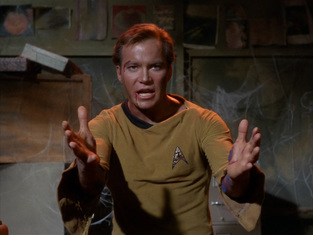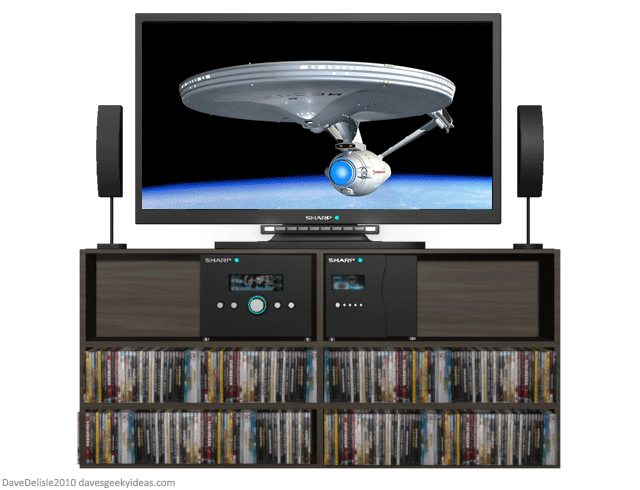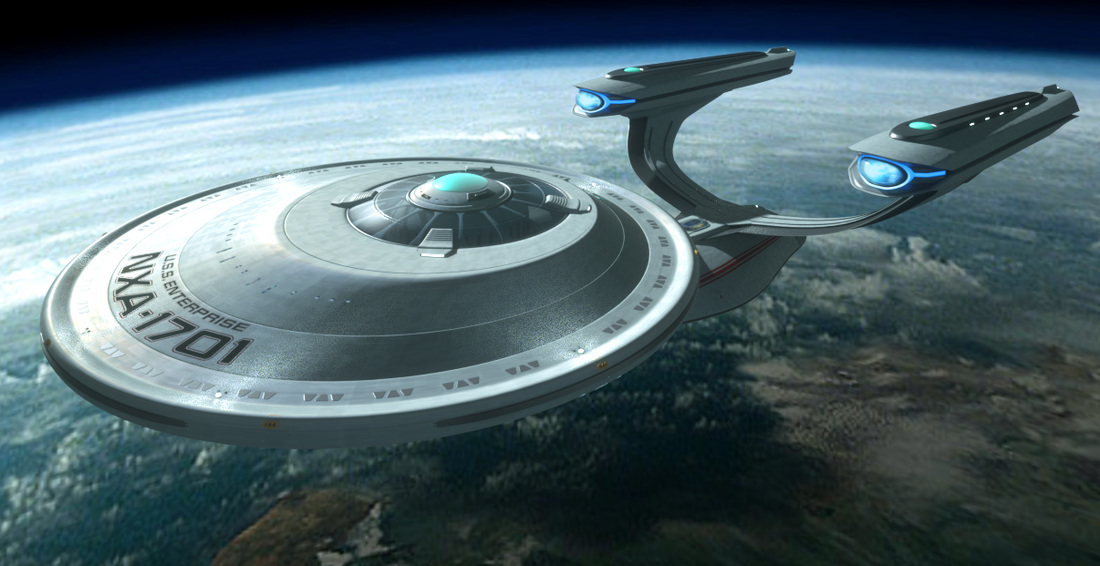I definitely owe everyone an update, so here it is!
First: Yes, I had the pitch meeting. It went about as one would expect from a pitch meeting (though this was my first time, so it was new to me). The producer I pitched to (a very high-placed producer at Paramount, they definitely gave me the right audience) listened carefully and took notes and has the pilot script. I prefaced the whole thing by saying that I knew Paramount has the movie rights and CBS has the TV rights, but that I figured Paramount would need to agree with CBS on a new show. I explained that my goal for the meeting was to convince Paramount that the idea is a solid one and that, if they liked it, they might help arrange a pitch meeting with CBS. Nobody in the room was under the impression that I was there to sell a TV series pitch to Paramount.
1) Star Trek is a cultural phenomenon, a positive force for social change. Its depiction of a diverse crew working together is an optimistic vision for the future that is sorely needed in our current climate.
2) A Star Trek TV series can explore a broader range of stories than action/adventure based movies and can develop a greater depth of character over more hours.
3) Star Trek has inspired generations of artists, engineers, scientists and creative thinkers. It has helped make the modern world. It is needed, again, to help shape the future our children will grow up in.
1) It is essentially the next Next Generation. It takes the spirit of The Original Series and re-imagines the show for a modern audience. It has a modern dramatic format, modern diversity and themes and technology that seems futuristic today.
2) It will stand on its own as a great show. Like The Next Generation, it will not rely on viewers having vast, intimate knowledge of every previous episode and movie. There will be references that longtime fans will get, and those references will enrich the experience for those fans, but they will not confuse new viewers. The time it takes place (200 years after Kirk's original mission) gives it enough distance to be its own show, and setting the mission in the Andromeda Galaxy gives the show a chance to build up its own lore while slowly introducing new viewers to the rich history of Trek as more Milky Way influence works its way into Andromeda over the course of the series.
3) The show will be presented in a modern dramatic format for TV. The template would be shows such as Mad Men, Breaking Bad, Game of Thrones, Daredevil and True Detective. 13 one-hour episodes per season - quality over quantity. The show will evolve each season to have a different premise, theme and story arc (though with enough room for interesting new sci-fi concepts and themes each week). This will allow for richer stories, real character development and greater audience engagement (and binge-watching!) This also allows for a greater concentration of budget-per-episode. A focus on the characters will engage viewers in a way that gets them personally invested in them. This allows the show to have lower stakes (the ship isn't in danger of blowing up each week) but maintain tension and engagement though true character development, less predictable plots and real change (no "false tension" or forced drama where you know everything will be reset by the end of the episode).
1) A Star Trek TV series will keep Trek fans entertained year over year, keeping them engaged in the franchise between movie releases. Its globally diverse cast will also create appeal for Star Trek in many major markets in which it has traditionally underperformed (China, India and Brazil, for example).
2) The show can generate spin-offs, new merchandise and movies of its own. Star Trek can have a shared universe like Marvel, DC and Star Wars are building.
3) A Star Trek TV series can grab a whole new generation of viewers and hook them as fans for decades, just as The Original Series and The Next Generation did. These new viewers will be loyal fans and consumers for decades to come.

I also met with a manager of an actor - one of my "concept cast" who has read the script and wants to be attached to it. This manager and their actor are very interested in the concept and have contacts of their own. Our hope is, if Paramount doesn't find time to get me in the room with CBS, this manager might be able to swing it through their contacts in the industry. Sorry I can't give more specific details, but I don't want to ruin the chances of this actually happening.
So there you have it! Will something happen? I don't know. Star Trek Beyond and the 50th Anniversary are next year. Maybe CBS already has plans for a new show and they'll surprise us all. Or maybe not. Maybe the movie and the anniversary will come and go with no new series announcement. Maybe then I'll hear something. I don't know. I've done everything I can do on the creative end - I have a 2 hour pilot script and a 90-page series bible with detailed character profiles and their development arcs, the complete episode-by-episode plot for season 1 and a season-by-season plot for 7 seasons as well as extensive background and tech information and a new ship design. All I need to do now is work my contacts and see what opportunities unfold. It will take some patience, but it seems like timing will be key in this very complicated situation.
One final note for everyone who's stuck around this long:
There are some more updates I may make (more costuming, a new logo, updates to background info), but those will have to come later.
And, of course, if there are any further developments that I can share, I will do so.







 RSS Feed
RSS Feed
